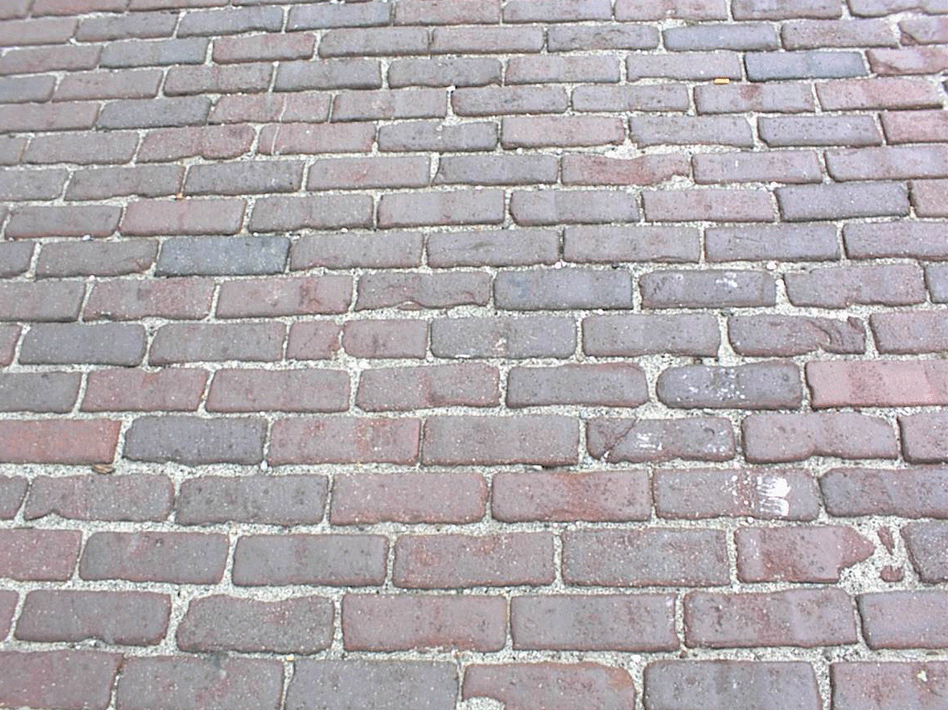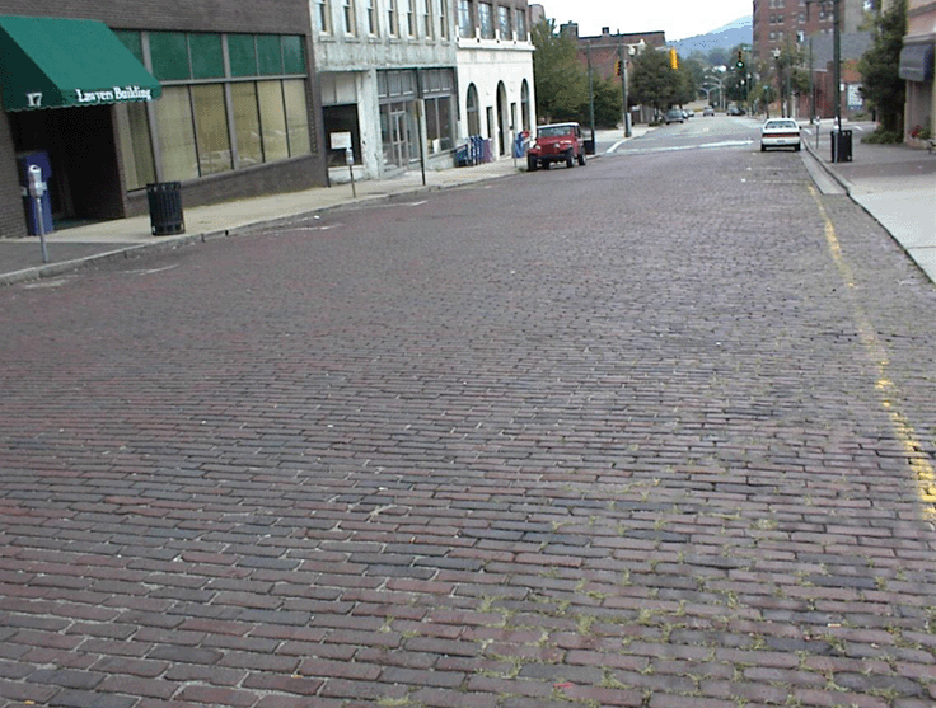 | wnc business & community directory |
|
This is an archived page that may contain outdated or incorrect information. Please visit www.Asheville.com for the latest news, events, and more.
The use of cobblestones and brick pavers fell out of favor in the U.S. in the early 1900's due to the availability of inexpensive petroleum products. Cobblestones and brick pavers are both expensive materials to purchase and labor intensive to install. But cobblestones and brick pavers provided some side benefits that were not recognized or considered very important at the time that they began to fall out of favor. One of the benefits that this type of road surface provides is rainwater absorption. The cracks between the cobblestones and brick pavers allow for water to be absorbed into the road bed, thus reducing rainwater run-off. Run-off has become a major consideration when plans are reviewed for new construction projects.  Cobblestone and brick paver road surfaces also have a traffic-calming effect on automotive traffic. The gapped and uneven surfaces of cobblestones and brick pavers result in a rougher and nosier ride for motorists, and consequently cause motorists to travel at slower speeds when traversing this type of surface.
Another important advantage to the cobblestone and brick paver road surface is the aesthetic beauty of this type of surface. Within downtown areas, people tend to find a cobblestone or brick surface more attractive and aesthetically pleasing to the eye than the now prevalent petroleum-based pavement surfaces. Because of the durability of the cobblestone and brick surfaces, they also lend an historic feel to the streets that they cover.
Thomas Wolfe, an Asheville native and world-renowned author, expressed some unique insights on the subject of cobblestone streets in his book, "You Can't Go Home Again." In "You Can't Go Home Again," Wolfe wrote,
Cobblestone and brick paver road surfaces also have a traffic-calming effect on automotive traffic. The gapped and uneven surfaces of cobblestones and brick pavers result in a rougher and nosier ride for motorists, and consequently cause motorists to travel at slower speeds when traversing this type of surface.
Another important advantage to the cobblestone and brick paver road surface is the aesthetic beauty of this type of surface. Within downtown areas, people tend to find a cobblestone or brick surface more attractive and aesthetically pleasing to the eye than the now prevalent petroleum-based pavement surfaces. Because of the durability of the cobblestone and brick surfaces, they also lend an historic feel to the streets that they cover.
Thomas Wolfe, an Asheville native and world-renowned author, expressed some unique insights on the subject of cobblestone streets in his book, "You Can't Go Home Again." In "You Can't Go Home Again," Wolfe wrote,
 Did ever the eye go seaward here with searching for the crowded sail, with longing for the crowded sail, with longing for the strange and unknown coasts of Spain? Did ever beauty come home to the heart and eyes? Did ever, in the thrusting crowd, eye look to eye, and face to face, and heart to heart, and know the moment of their meeting-stop and pause, and be oblivious in this place, and make one spot of worn pavement sacred stone? You won't believe it, Admiral Drake, but it is so--- these things have happened on the pavements of America. But, as you see yourself, they have not left their mark."
Did ever the eye go seaward here with searching for the crowded sail, with longing for the crowded sail, with longing for the strange and unknown coasts of Spain? Did ever beauty come home to the heart and eyes? Did ever, in the thrusting crowd, eye look to eye, and face to face, and heart to heart, and know the moment of their meeting-stop and pause, and be oblivious in this place, and make one spot of worn pavement sacred stone? You won't believe it, Admiral Drake, but it is so--- these things have happened on the pavements of America. But, as you see yourself, they have not left their mark."all contents copyright © 1999, asheville.com. contact: [email protected] or 828.253.2880 For listing and advertising information...
|
